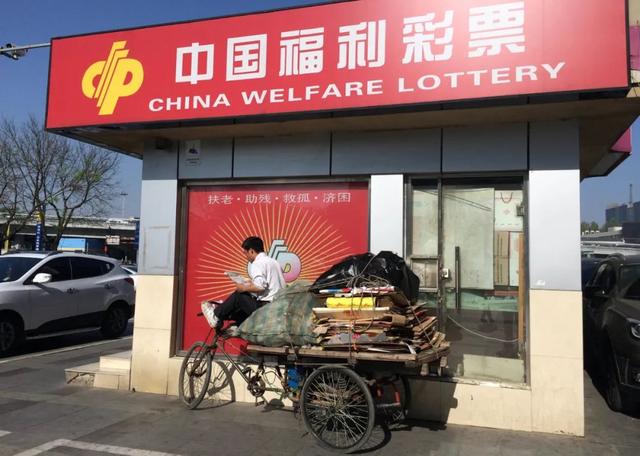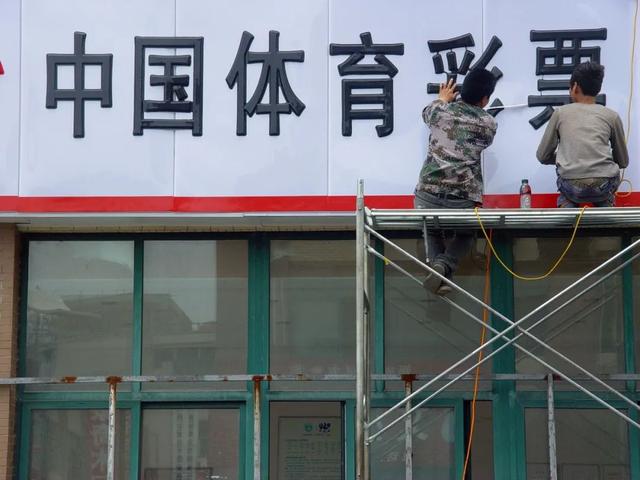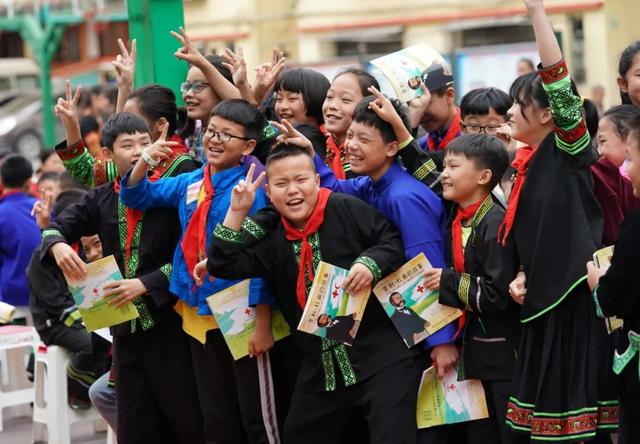Public welfare is the lifeline of lottery.

Welfare lottery is an important source of funds for the development of social welfare in China: every time 1 yuan Welfare Lottery is sold, 0.2971 yuan will be used as the lottery public welfare fund to invest in social welfare and public welfare undertakings.
Under the strong supervision policy of the state, the lottery industry has arrived in winter and spring is still far away.
After the audit storm in 2015, the ban on Internet lottery in 2018, and the strict restrictions on fast-opening games in 2019, and the impact of the COVID-19 epidemic, the lottery sales in China dropped by over 20% in 2020.
On February 5th, the data of "China Welfare Lottery Development Report (2019)" released by the Welfare Lottery Research Group of China Academy of Social Sciences showed that from its issuance in 1987 to December 31st, 2019, a total of 2,210.964 billion yuan of welfare lottery tickets were sold nationwide, and 656.865 billion yuan of lottery public welfare funds were raised, with a raising rate of 29.71%.
Welfare lottery is an important source of funds for the development of social welfare undertakings in China: every time 1 yuan Welfare Lottery is sold, 0.2971 yuan will be used as the lottery public welfare fund to invest in social welfare and public welfare undertakings, directly and indirectly benefiting hundreds of millions of people, creating tens of billions of tax revenue and creating more than 400,000 jobs.
How should the lottery industry get out of the strange circle of "chaos as soon as it is released, and death as soon as it is managed"?
Fall below 150 billion
On January 22nd, official website, the Ministry of Finance, disclosed the "report card" of the national lottery market sales last year.
From January to December, 2020, the national lottery sales totaled 333.951 billion yuan, a year-on-year decrease of 88.103 billion yuan or 20.9%. Among them, the sales of welfare lottery institutions was 144.488 billion yuan, a year-on-year decrease of 46.750 billion yuan or 24.4%; The sales of sports lottery institutions reached 189.463 billion yuan, a year-on-year decrease of 41.352 billion yuan or 17.9%. Compared with 511.472 billion yuan in 2018, the "achievements" in 2020 can be described as bleak.
He Hui, an associate professor at the Business School of China Academy of Social Sciences and editor-in-chief of the Blue Book of Welfare Lottery, said in an interview with China Philanthropist that the overall decline in lottery sales last year was due to the epidemic situation, which led to the stagnation of lottery sales for a long time, and the government’s further supervision of the lottery market in 2020, which gradually stopped the sales of video lottery tickets, and stricter sales restrictions were imposed on high-frequency quick-opening lottery tickets and quiz lottery tickets from 2019.
"The reason for the decline of welfare lottery tickets is mainly that video lottery tickets and high-frequency fast-opening games were originally important products of welfare lottery tickets, accounting for a relatively large proportion of total sales."He Hui said.
In fact, since 2019, Fucai sales have begun to drop sharply. According to the statistics of the Ministry of Finance, in 2019, from January to December, a total of 422.053 billion yuan of lottery tickets were sold nationwide, a year-on-year decrease of 89.418 billion yuan or 17.5%. Among them, the sales of welfare lottery institutions was 191.238 billion yuan, a year-on-year decrease of 33.318 billion yuan or 14.8%.
Obviously, the epidemic has made lottery sales worse, but the main reason is that the government has strengthened supervision over the lottery industry.
Chaos
Lottery is both entertaining and public welfare. Faced with the tempting "cake", many companies are scrambling to join the food fight.
At the peak of 2014, there were about 300 domestic Internet lottery companies, and more than 100 million users bought lottery tickets through Internet channels. This has also created a "no threshold" and "low cost" Internet lottery market, which is a mixed situation.

From January to December, 2020, the national lottery sales totaled 333.951 billion yuan, a year-on-year decrease of 88.103 billion yuan or 20.9%.
In 2015, after the national special audit of lottery funds, relevant departments strengthened the supervision and management of the lottery market, and also strengthened the investigation and punishment of unauthorized use of the Internet to sell lottery tickets. Since then, the growth rate of lottery sales in China has declined. However,After a period of time, illegal phenomena such as unauthorized use of the Internet to sell lottery tickets have slowly risen, irrational lottery purchases have gradually increased, and some chaos in the lottery market has reappeared.
In August 2018, the Ministry of Finance, the Ministry of Civil Affairs and the General Administration of Sports classified "welfare lottery tickets and sports lottery tickets sold by the Internet without authorization" as illegal lottery tickets when revising the Detailed Rules for the Implementation of the Regulations on Lottery Management. This is the first time in China’s lottery-related laws and regulations that unauthorized use of the Internet to sell lottery tickets has been clearly defined as illegal lottery tickets.
Defining illegal Internet lottery sales as illegal lottery tickets has also greatly shocked all illegal Internet lottery platforms and business owners. In September 2018, a number of illegal Internet lottery platforms took the initiative to suspend related services. The revised Rules for the Implementation of the Lottery Management Regulations came into effect on October 1, 2018. Since then, the phenomenon of illegal internet lottery sales has disappeared in a large area.
He Hui told China Philanthropist that there are many reasons for the relevant departments to strengthen the supervision of the welfare lottery market, such as anti-addiction, anti-money laundering and many other reasons, which are conducive to reshaping the public welfare image of welfare lottery. However, it has also exposed some problems such as unsmooth lottery management system and mechanism, imperfect market operation, unclear development orientation of welfare lottery and lack of stable market expectation for a long time.
Facing the multi-dimensional market dilemma and deep-seated development problems, how to deal with the relationship between market development and social responsibility of welfare lottery?
He Hui suggested,First of all, we should accelerate the legislation of lottery law and deepen the reform of lottery operation mechanism.
The Regulations on Lottery Management promulgated and implemented in 2009 is only an administrative regulation. At present, the National People’s Congress has begun the legislative process of the Lottery Law. Promulgating a relatively complete lottery law as soon as possible is an important prerequisite for the healthy development of the lottery industry.
Secondly, it is necessary to rationally divide the lottery market, explore the separation of management and operation, promote the professional and market-oriented operation of lottery institutions, and establish an effective incentive and restraint mechanism. Further standardize the management of lottery funds and adjust the distribution ratio of central and local public welfare funds. Explore the establishment of a fault-tolerant mechanism in the process of reform, innovation and development, and further clarify the regulatory responsibilities of local financial departments.
Public welfare is more beneficial.
The original intention of lottery was to raise public welfare funds to solve social problems, and the public welfare attribute is the lifeline of lottery survival and development.
Lottery public welfare fund is one of the forms of non-tax revenue of the government. According to the national regulations, it is the net income after deducting the reward bonus and issuance funds from the sales income obtained by issuing lottery tickets. Take the two-color ball as an example, 51% of its sales are used as lottery bonuses, 13% as distribution fees and 36% as lottery public welfare funds. Every time a lottery player buys a lottery two-color ball or a lottery ticket with a bet of 2 yuan, he will be given 70 cents as a tribute to the national public welfare undertakings.

On May 8, 2019, Xinzhou Primary School, Longlin Autonomous County, Baise, Guangxi, launched the "Angel Tour Screening and Rescue Action for Children with Poor Congenital Heart Disease". The China Red Cross Foundation has set up a special fund to help children with congenital heart disease from poor families, which has been supported by the National Lottery Public Welfare Fund.
The data shows that in the past 30 years, China has raised more than one trillion yuan of lottery public welfare funds from lottery sales revenue, which was mainly used for civil welfare and sports in the early days.In recent years, the total investment of the national social security fund has accounted for 1/3 of the financial resources, and the rest is mainly used for social welfare undertakings, including pension, medical care, the Red Cross, the disabled, poverty alleviation, legal aid, disaster relief and post-disaster recovery and reconstruction, which has become an important financial support for the development of social welfare undertakings.
According to the allocation policy of lottery public welfare fund approved by the State Council, the lottery public welfare fund is allocated between the central and local governments at a ratio of 50:50. The central centralized lottery public welfare fund is distributed among the national social security fund, the central special lottery public welfare fund, the Ministry of Civil Affairs and the General Administration of Sports in the proportion of 60%, 30%, 5% and 5% respectively.
According to the above distribution policy, in 2019, the lottery public welfare fund was allocated to the National Social Security Fund Council of 46.428 billion yuan to supplement the National Social Security Fund; 17.592 billion yuan was allocated to the central special lottery public welfare fund for social welfare projects approved by the State Council; 3.869 billion yuan was allocated to the Ministry of Civil Affairs to fund projects such as the construction of social welfare facilities for the elderly, the disabled, orphans and people with special difficulties; 3.869 billion yuan was allocated to the State Sports General Administration to support mass sports and competitive sports development projects.
The use of public welfare fund is a process of policy perfection, from paying attention to investment, service and benefit. It is necessary to further optimize the rules of lottery public welfare fund distribution based on existing practice.
He Hui suggested that, first, when selecting projects and allocating public welfare funds, we should solicit and bid for projects in a larger scope as far as possible to understand where the social needs are, and consider improving the professionalism and efficiency of implementation through market competition. Second, when the public welfare fund is allocated to specific projects and then implemented, it is necessary to scientifically evaluate the performance. This kind of evaluation should take into account not only the quantitative indicators of evaluation, but also the indicators that are difficult to quantify but very important.
"At present, the social impact of welfare lottery is weak, which is largely related to the low social effect of the use of public welfare funds in a broad sense."He Hui said that we need to pay special attention to the social effects of the use of public welfare funds. While ensuring the public welfare fund investment in traditional welfare projects, we should also strengthen and increase the investment in public welfare projects with wider social effects.
Source: China Philanthropist Magazine.
Image source:China News Photo Network
Reporting/feedback